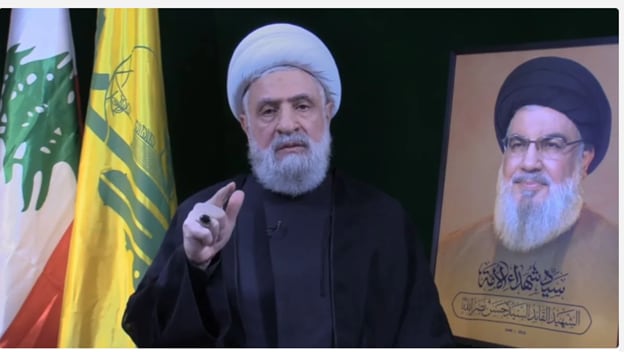A 75-page Dari-language book describes the characteristics of the Khawarij in the light of shari'a principles and, assessing whether the Islamic State's Khurasan Province (ISKP) mujahideen or the Afghan Taliban are Khawarij, declares that the Taliban are Khawarij. The Khawarij, or Kharijites (literally, "those who come out"), were an early Islamic sect that advocated excommunicating Muslims for even minor sins and was proclaimed heretical by the mainstream Sunna. Today, the term is used to brand Muslim groups as extremist.
The book is titled "Characteristics Of The Khawarij In The Apostate Taliban," written by an unknown author, and published by the Al-Azaim Media Foundation, a media outlet linked to the Islamic State Khorasan Province (ISKP), which defines itself as a supporting entity for the Islamic State (ISIS). This is the second edition of the book, which was first published in Muharram 1444, in the Hijri calendar, which corresponds with August 2022.
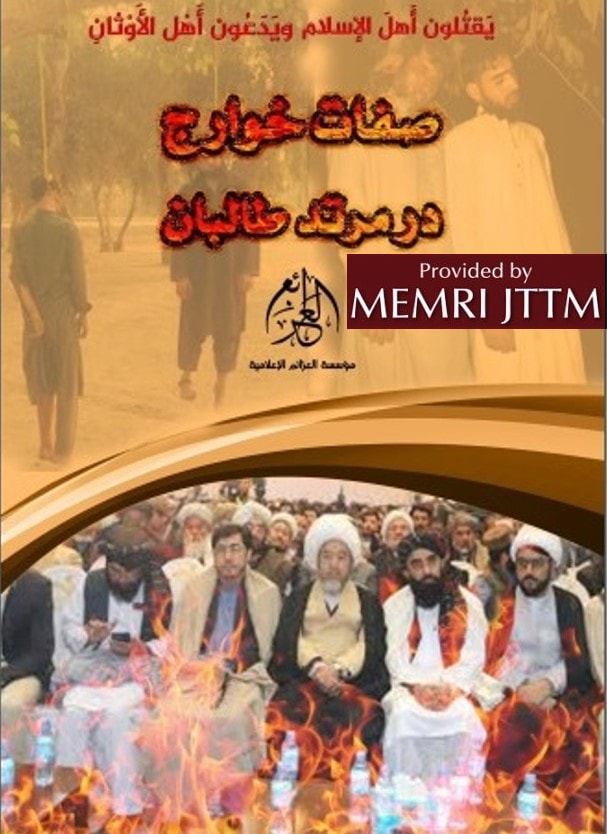
The book's cover
The book tries to compare, based on shari'a, the Afghan Taliban and Islamic State fighters in the light of the characteristics of Khawarij. The book cites the Quran, hadiths, and the opinions of Islamic jurists. At the beginning, the book offers three reasons for classifying the Taliban as Khawarij: Deep prejudice in religion; "Sick" scholars from "the court of the rulers"; and a misinterpretation and misunderstanding of the Quran. On page 12, under a subtitle "Other Characteristics Of Khawarij" the book gives ten reasons from the hadiths for saying that the Taliban are Khawarij and outside of Islam.
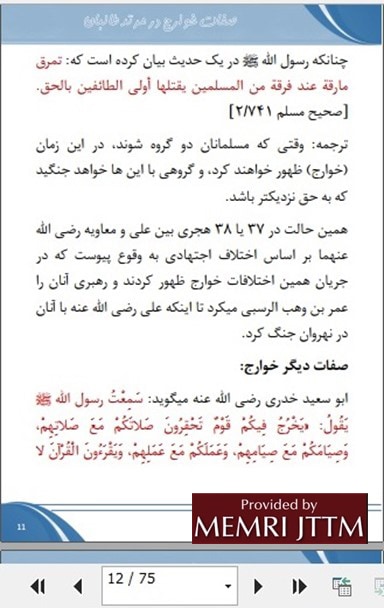
Under the subheading "Some Of The Misguided Beliefs Of The Khawarij," on page 36, the book tries to prove that the Taliban's faith is not Islamic, and that their beliefs are against Islamic principles, giving 22 reasons for their position from the hadiths. The book features images of Afghan Taliban leaders, their statements about certain issues, and a comparison of the Taliban movement with the Islamic State, and criticizes the Taliban's political stances on Shi'ites, relations with Jews and Christians, and fighting against other Islamic groups.
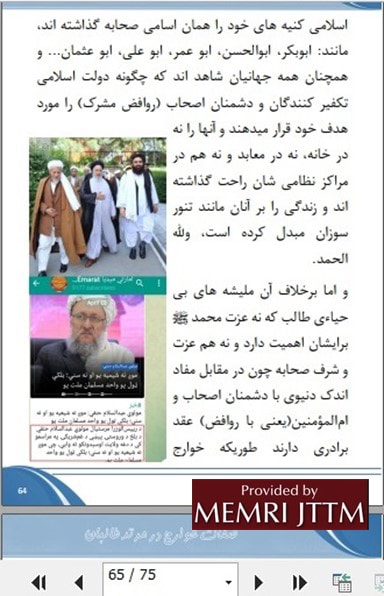
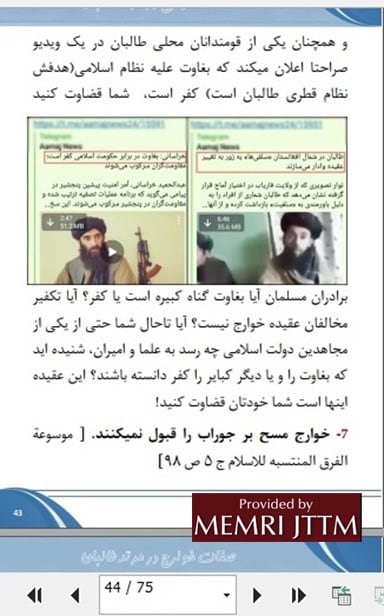
Source: I3l.co.za/402726/, June, 15, 2023
The full text of this post is available to subscribers.
Please login or register to request subscription information from MEMRI




